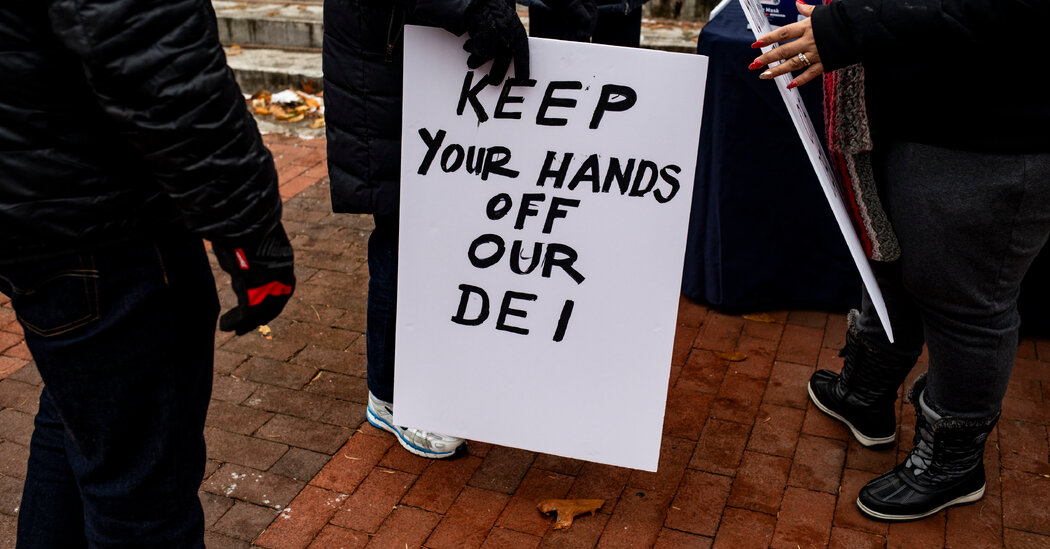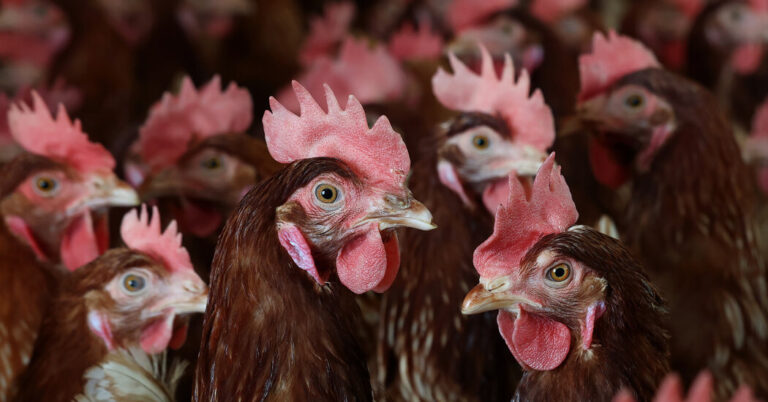Here is the result in plain text:
The American Psychological Association, which sets standards for professional training in mental health, has voted to suspend its requirement that postgraduate programs show a commitment to diversity in recruitment and hiring.
The decision comes as accrediting bodies throughout higher education scramble to respond to the executive order signed by President Trump attacking diversity, equity and inclusion policies. It pauses a drive to broaden the profession of psychology, which is disproportionately white and female, at a time of rising distress among young Americans.
The A.P.A. is the chief accrediting body for professional training in psychology, and the only one recognized by the U.S. Department of Education. It provides accreditation to around 1,300 training programs, including doctoral internships and postdoctoral residencies.
Mr. Trump has made accrediting bodies a particular target in his crusade against D.E.I. programs, threatening in one campaign video to “fire the radical Left accreditors that have allowed our colleges to become dominated by Marxist maniacs and lunatics” and “accept applications for new accreditors.”
Department of Justice officials have pressured accrediting bodies in recent weeks, warning the American Bar Association in a letter that it might lose its status unless it repealed diversity mandates. The A.B.A. voted in late February to suspend its diversity and inclusion standard for law schools.
The concession by the A.P.A., a bastion of support for diversity programming, is a particular landmark. The association has made combating racism a central focus of its work in recent years, and in 2021 adopted a resolution apologizing for its role in perpetuating racism by, among other things, promulgating eugenic theories.
Aaron Joyce, the A.P.A.’s senior director of accreditation, said the decision to suspend the diversity requirement was driven by “a large influx of concerns and inquiries” from programs concerned about running afoul of the president’s order.
A spokesman for the Department of Justice said the A.P.A. had taken a good step, but would have to take further steps to eliminate diversity mandates, which he said “encourage or require illegal discrimination.”
Kevin Cokley, a professor of psychology at the University of Michigan, said he was “absolutely devastated” to learn of the A.P.A.’s decision on a psychology listserv this week.
The demographic breakdown of graduate students in Ph.D. programs, in contrast, is more in line with the country. According to 2022 data from the A.P.A., 54 percent of doctoral students were white, 10 percent were Black, 10 percent were Asian and 11 percent Latino.
John Dovidio, a professor emeritus of psychology at Yale and the author of “Unequal Health: Anti-Black Racism and the Threat to America’s Health,” said the A.P.A.’s focus on diversity in recruiting had played a major part in that change.
Cynthia Jackson Hammond, the president of the Council for Higher Education Accreditation, said it is “unprecedented” for such bodies to receive direct orders from the government.
The federal government began taking a role in accreditation after World War II, as veterans flooded into universities under the G.I. Bill. Accrediting bodies are regularly reviewed by the National Advisory Committee on Institutional Quality and Integrity, which advises the Secretary of Education on whether to continue to recognize them.
But government officials have never used this leverage to impose ideological direction on higher education, Ms. Jackson Hammond said. She said diversity in recruitment remains a serious challenge for higher education, which is why the standard is still so commonly used.
Source link




